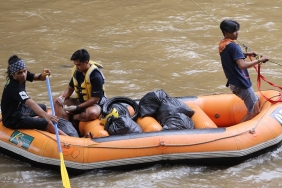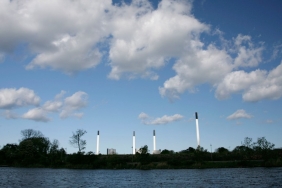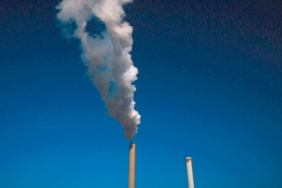WWF: SUSTAINABLE PALM OIL CERTIFICATION FOR ENHANCING COMPETITIVENESS AND LONG-TERM BUSINESS
BALI (22/02)—The 3rd International Conference on Oil Palm and the Environment/ ICOPE organized by PT. Smart Tbk. Indonesia, WWF-Indonesia, and Cirad France, the three emblematic organizers of ICOPE is taking place in Bali on 22-24 February 2012. It is attended by key actors of palm oil sector- plantation companies, manufacturers, retailers, research institutions, universities, NGOs, government agencies, and world environment experts. The conference aims at identifying potentials and solutions to address various environmental issues in order to accelerate the production of sustainable palm oil.
“This multi-stakeholder dialogue is an important moment for driving palm oil market transformation towards sustainable production. The dynamic concept and implementation of multi-stakeholder commitments will enrich and promote the adoption of sustainable palm oil practices and management in the trade chain of palm oil, said Irwan Gunawan, Deputy Director of WWF-Indonesia Market Transformation. WWF expects, he added, this forum will be able to accelerate the commitments among palm oil producers to implement best business management practices which meet the standards of Roundtable of Sustainable Palm Oil (RSPO). In addition to that, it is expected to be able to promote buyers commitments and create incentives towards RSPO-certified palm oil.
“Sustainable palm oil management is undoubtedly feasible. Therefore, business players need to view sustainable palm oil certification as an investment instrument which will improve their competitiveness and long-term business,” Irwan added. Market urgently needs to accelerate their commitments to buy sustainable palm oil and play a significant role in promoting RSPO standards among the producer countries. The score card released by WWF last November 2011, announced 87 palm oil companies committing to source 100 % RSPO-certified palm oil by 2015 or earlier.
WWF-Indonesia Conservation Director Nazir Foead highlighted the importance of government policy in promoting sustainable management of palm oil plantation. “It is about time for the government to reinvest in order to improve the competitiveness of palm oil industry by increasing productivity, providing financial capital for farmers, proper infrastructures, as well as fiscal incentives or easier license issuance for sustainable palm oil production, “Nazir emphasized.
The national income gained from corporate income tax, value added tax, and export duties on palm oil and other sources in 2011 generates no less than 30 billion rupiahs.
In every supply chain, beside financial incentives in the form of credit, insurance, lower bank interest and many more, the government support regarding pro-sustainability policy and technical assistances for instance trainings, workshops, or other capacity building programs, are key aspects in promoting the adoption of RSPO Principles & Criteria (P&C) among the producers- including the small scale farmers. The palm oil farmers are essential since about 45% of the total palm oil plantations in the country are owned by them. It is even predicted that in the future, the palm oil plantations owned by smallholders will rapidly expand.
Notes to Editor
More detail information regarding International Conference on Oil Palm and the Environment (ICOPE), visit http://www.icope-series.com/conferences_detail/3
For further information, contact:
- Irwan Gunawan, Deputy Director of WWF-Indonesia Market Transformation, igunawan@wwf.or.id
- Nazir Foead : WWF-Indonesia Conservation Director, nfoead@wwf.or.id





